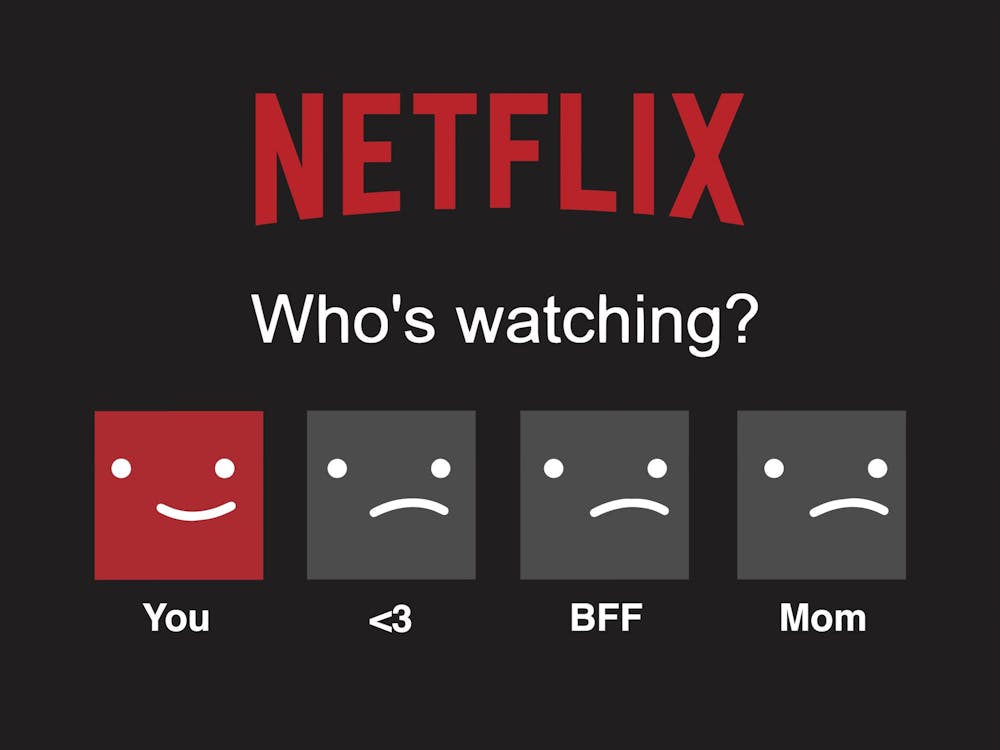In recent weeks, several college campuses have been home to protests and encampments, both lawful and unlawful, over the Israel-Hamas war. Most of these demonstrations have been staged by pro-Palestinian activists. Some of them have been interpreted as antisemitic, and many Jewish students have reported acts of intimidation and violence since the Hamas attack on Israel on Oct. 7, 2023.
The initial responses of universities were seen as tepid by many Americans. Consequently, the United States House of Representatives Committee on Education and the Workforce conducted hearings about the safety of Israeli and Jewish students on Dec. 5, 2023. Among other witnesses, the presidents of Harvard University, University of Pennsylvania (Penn) and the Massachusetts Institute of Technology, testified. Unprepared for an ambush by Representative Elise Stefanik (R-NY 21st District), the presidents appeared tone deaf to the horrors of the attack on Israelis, and to the welfare of their own students.
The trio appeared cold, measured and needlessly legalistic. They waffled when asked about their efforts to protect their students, testifying that “context” is important. Most troubling, the presidents failed to defend, nonetheless educate about, the core mission of a university: to advance the discovery and dissemination of knowledge.
National Public Radio referred to the testimony as disastrous. Doug Emhoff, the “second gentleman” of the U.S., characterized the presidents as exhibiting a “lack of moral clarity.” The public, donors and elected officials reacted disapprovingly, resulting in the Penn president resigning and contributing to the resignation of Harvard’s president, who was also caught up in allegations of plagiarism.
Subsequently, and in a possible overreaction to the fallout from the hearing, pro-Palestinian demonstrators have been shot with rubber bullets, handcuffed and arrested. Although these events are too fresh to draw any conclusions about the necessity of these interventions, this isn’t good for anyone.
The presidents were right about context. First Amendment law is highly contextual. On the other hand, the public response to their testimonies is also contextual.
The history of those universities speaking loudly about progressive matters, sometimes punishing dissenters from the center-right, made their newfound concern for the academic freedom of antisemitic speech on their campuses appear to be intellectually dishonest and hypocritical. Yet the pickle they found themselves in isn’t new. There are many reasons universities find themselves between the academic freedom rock and a political hard place.
One reason is the increasing corporatization and consumerization of colleges. For decades, particularly in public universities where state support as a percentage of total expenses has sharply declined, the scarcity of resources has caused higher education to behave like big business.
Today, students aren’t only learners, they are customers; faculty are morphing from scholars into simple laborers; college presidents are less leaders than managers; and donors, alumni and other external players are treated as shareholders. These changes cause universities to pander to the demands of their “customers.” This was true of the trio of presidents who testified on Dec. 5. They ignored the threats presented by, and in some instances acceded to the demands of, their antisemitic and anti-Israel students and faculty.
Another factor, which is often fuel for anti-intellectual and conservative attacks on higher education, is that a re-progressive elitism has taken hold of most college campuses. The data on the liberal bias in higher education is stunning and largely uncontested. One researcher found, as self-reported by faculty, ratios of Democrats to Republicans of 44:1 in sociology, 48:1 in English, 70:1 in religion and 108:0 in anthropology, communications and interdisciplinary studies. Consequently, most academic departments in the humanities and social sciences have no conservative faculty, whatsoever. A lesser skew was found in the hard sciences and adjacent professional fields, where the ratios were 5:1 in chemistry, 6:1 in physics and 2:1 in engineering.
Another change has been in how faculty define their role. In 2007, the first year the Higher Education Research Institute began collecting the data: 58% of faculty reported that one of their responsibilities was to encourage students to become agents of social change. By 2016, the last time the data was collected, that number had increased to 81%.
This is hardly an incubator for intellectual diversity. Unsurprisingly, Penn and Harvard were ranked 247 and 248 out of 248 universities in support of free expression by the Foundation for Individual Rights and Expression. You read that right: Two of the most prestigious universities in the U.S., if not the world, were last and next to last in one of the most important aspects of a university’s mission. If they were students, their grades would be an F.
Enjoy what you're reading?
Signup for our newsletter
Although most faculty deny it, the ideological homogeneity of professors isn’t good for teaching, research or student development. I also believe that it has contributed to the nation’s alarming political divide.
When these changes are added to the contemporary appetite for virtue signaling, the product is a practice of colleges issuing missives about political and social issues. Most of these statements have expressed progressive ideas about race, policing, war and economics. Across the nation, professors who disagree with their institutions’ narratives have been ostracized, doxed, suspended, banned from campus and terminated by their institutions. Liberals, historically champions of free speech, have silenced intellectuals who express views they find disagreeable. Attempts to approach issues of racial justice or COVID policy in a scholarly manner, bringing nuance and evidence to these subjects, have ruined careers. To be fair, the problem isn’t entirely one-sided, as evinced by recent attempts to suppress the speech of pro-Palestinian students.
Miami University isn’t immune to these trends. State financial support has declined by 41% since 2000 (adjusting for inflation). Faculty are increasingly called upon to act as registrar, recruiter and marketer, and with an outsized concern for its “brand,” the university sometimes prioritizes shining the “M” over the free speech interests of its students and faculty.
Universities have an obligation to do more than respect academic freedom; they are obliged to create environments where contentious, sometimes hurtful, discussions thrive. They must have clarity of purpose and the personal fortitude to resist the demands of students, parents, faculty, donors and politicians. Although difficult, there is a way forward that upholds the mission of universities while minimizing the fallout for refusing to accede to political demands. The University of Chicago (UChicago), commonly regarded as a leader in free speech and inquiry, has had the answer for decades: institutional neutrality. UChicago’s neutrality policy is expressed in the “Kalven Report” (1967), which reads, in part:
“The instrument of dissent and criticism is the individual faculty member or the individual student. The university is the home and sponsor of critics; it is not itself the critic. It is, to go back once again to the classic phrase, a community of scholars. To perform its mission in society, a university must sustain an extraordinary environment of freedom of inquiry and maintain an independence from political fashions, passions, and pressures. A university, if it is to be true to its faith in intellectual inquiry, must embrace, be hospitable to, and encourage the widest diversity of views within its own community. It is a community but only for the limited, albeit great, purposes of teaching and research. It is not a club, it is not a trade association, it is not a lobby.”
The authors of the “Kalven Report” identified a few narrow exceptions to the neutrality principle, such as threats to the “mission of the university and its values of free inquiry,” and when a college is speaking in its corporate capacity, such as when its property or funds are in question. In the current context, it is reasonable for a university to speak to its efforts to protect its students from physical harm and violence. Otherwise, silence is golden.
Kalven also offers leaders a clear path and a shield against political interventions. This can be seen in UChicago President Alivisatos’ statement Concerning the Encampment of April 29, 2024. Alivisatos reaffirms the university’s support of free speech, even when deeply offensive, restates its viewpoint neutrality on the conflict, and he unequivocally states that encampments and protests that don’t block the learning or expression of others and do not meaningfully disrupt the functioning or safety of the university will be allowed. He then offers examples of permitted and forbidden expression. For the former, displaying a huge Palestinian flag was allowed for weeks. As an illustration of the latter, the university didn’t permit the occupation of a building because the conduct interfered with student learning and the university’s normal operations.
There is a long history of political and social expression by students on college campuses. As students are exposed to new ideas, explore injustice and experience the feelings that attend learning uncomfortable truths, they will react. These impulses should not be suppressed when expressed lawfully. However, most college students have not reached full emotional or intellectual maturity. It is incumbent on faculty and university leaders to guide them; to educate them in the methods of civil discourse in a liberal democracy, to teach respect for the rights of others and in the most extreme instances, the elements of civil disobedience. What a university shouldn’t do is take a political position that inflames passions or chills the expression of students or faculty.
Miami, and its constituent units, should adopt a policy that empowers its faculty and students, free of the chilling power of university proclamations, to speak through their public statements, research and teaching. With respect, I ask the leaders of the University Senate, the Board of Trustees, the president and the provost to consider adopting the Kalven principles.
This op-ed is an updated version of a column that appeared in the Cincinnati Enquirer, and is published by The Miami Student with the Enquirer’s permission.
At The Student, we are committed to engaging with our audience and listening to feedback. This includes publishing a diverse array of guest editorials. For more information on guidelines and processes, email Sam Norton, The Student's opinion editor at nortonsm@miamioh.edu.




